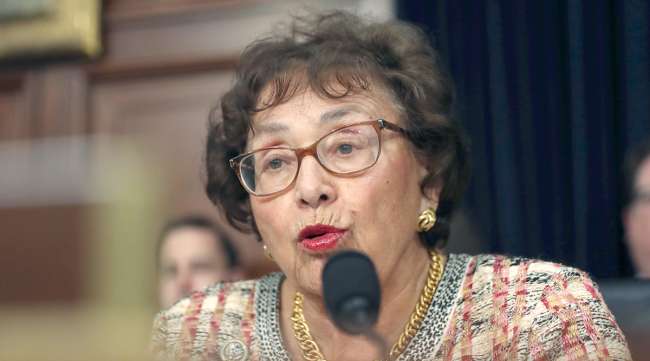Senior Reporter
House to Take Up Fiscal 2021 Transportation Funding Bill in July

[Stay on top of transportation news: Get TTNews in your inbox.]
Legislation that would fund operations at the U.S. Department of Transportation for the next fiscal year will be considered by a House panel in July.
The leadership of the House Appropriations Committee announced that the markup process for the fiscal 2021 transportation measure will begin July 8. The hearing is part of a robust schedule that includes committee consideration of fiscal 2021 funding bills for the rest of the federal government.
Committee approval of the transportation bill would advance it to the floor for consideration as early as mid-July. Appropriators have yet to unveil the text of the legislation.
Committee Chairwoman Nita Lowey (D-N.Y.) has been critical of President Donald Trump’s fiscal 2021 budget request for the U.S. Department of Transportation. She described proposals in the president’s request related to Amtrak, certain investment grants, and an account central to funding highway projects as “gross inadequacies.”
The president needs to get serious about negotiating with Congress and finding new revenue for the infrastructure that virtually everyone agrees is necessary for our shared prosperity.
Rep. David Price (D-N.C.)
“These decreases and eliminations would seriously jeopardize safety of the traveling public. These proposals are opposed by the American people and bipartisan majorities in both chambers. While this proposal is better than in previous years, the committee will continue prioritizing safety,” Lowey said earlier this year.
“The president needs to get serious about negotiating with Congress and finding new revenue for the infrastructure that virtually everyone agrees is necessary for our shared prosperity,” added Rep. David Price (D-N.C.), chairman of the Transportation, Housing and Urban Development, and Related Agencies Appropriations Subcommittee.
The president’s request would provide the department $21.6 billion in discretionary spending. That would amount to a 13% decrease from the previous year’s enacted level. Mandatory contract authority and obligation limitations would receive $66.2 billion, which would be an 8% increase from the previous-year enacted level.
Under the request, the Federal Motor Carrier Safety Administration would receive nearly a 4% increase from the previous year. Additionally, the request calls for $1 billion for grants that would back both infrastructure and freight projects.
On the other side of the Capitol, the Senate has yet to outline a schedule for considering the fiscal 2021 appropriations bills. The top Democrat on the committee, Sen. Patrick Leahy of Vermont, criticized Republican leaders.

Leahy
“Senate Democrats are committed to producing bipartisan bills. There is bipartisan agreement that we need to address the COVID pandemic. And if we want to truly address the issues of racial injustice that George Floyd’s tragic death has brought to the surface, we need more than symbolism. We need to appropriate money for programs that advance these issues,” Leahy said this month. Floyd’s death by a Minnesota police officer sparked protests and conversations about police brutality and inequality. Added Leahy, “Offering and considering amendments related to appropriations to address the most important issues of the day is not partisan. It is the job the committee is here to do.”
Federal funding authority runs through the end of September. To avert a shutdown of most federal agencies, Congress needs to approve the next round of funding bills before the new fiscal year starts Oct. 1. If lawmakers are unable to approve full-year funding bills, Congress has the option of approving short-term measures.
Besides the appropriations process, congressional leaders indicated this summer they intend to debate comprehensive law enforcement reform legislation, a military affairs reauthorization bill, and myriad nominations in the Senate.
The consideration of a House-passed $3 trillion emergency package designed to provide aid for agencies and various sectors during the COVID-19 pandemic has not been scheduled in the Senate.
Want more news? Listen to today's daily briefing:
Subscribe: Apple Podcasts | Spotify | Amazon Alexa | Google Assistant | More





